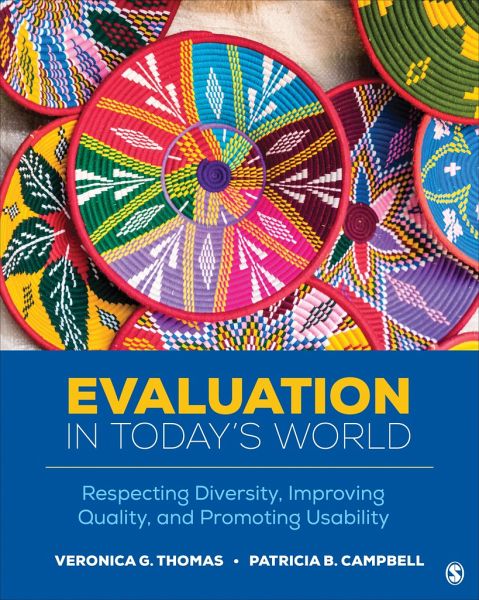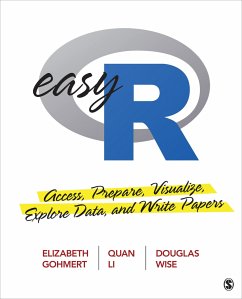
Evaluation in Today's World
Respecting Diversity, Improving Quality, and Promoting Usability
Versandkostenfrei!
Versandfertig in 6-10 Tagen
97,99 €
inkl. MwSt.

PAYBACK Punkte
49 °P sammeln!
Recipient of a 2021 Most Promising New Textbook Award from the Textbook & Academic Authors Association (TAA)Evaluation in Today s World: Respecting Diversity, Improving Quality, and Promoting Usability is a timely and comprehensive textbook that guides students, practitioners, and users of evaluations in understanding evaluation purposes, theories, methodologies, and challenges within today s sociocultural and political context. Veronica G. Thomas and Patricia B. Campbell include discussions of evaluation history, frameworks, models, types, planning, and methods, through a social justice, dive...
Recipient of a 2021 Most Promising New Textbook Award from the Textbook & Academic Authors Association (TAA)
Evaluation in Today s World: Respecting Diversity, Improving Quality, and Promoting Usability is a timely and comprehensive textbook that guides students, practitioners, and users of evaluations in understanding evaluation purposes, theories, methodologies, and challenges within today s sociocultural and political context. Veronica G. Thomas and Patricia B. Campbell include discussions of evaluation history, frameworks, models, types, planning, and methods, through a social justice, diversity, and inclusive lens. The authors focus on ethics in diverse cultural contexts, help readers understand how social problems and programs get politicized and, sometimes, framed through a racialized lens, show how to engage stakeholders in the evaluation process, and communicate results in culturally appropriate ways.
Included with this title:
The password-protected Instructor Resource Site (formally known as SAGE Edge) offers access to all text-specific resources, including a test bank and editable, chapter-specific PowerPoint® slides.
Evaluation in Today s World: Respecting Diversity, Improving Quality, and Promoting Usability is a timely and comprehensive textbook that guides students, practitioners, and users of evaluations in understanding evaluation purposes, theories, methodologies, and challenges within today s sociocultural and political context. Veronica G. Thomas and Patricia B. Campbell include discussions of evaluation history, frameworks, models, types, planning, and methods, through a social justice, diversity, and inclusive lens. The authors focus on ethics in diverse cultural contexts, help readers understand how social problems and programs get politicized and, sometimes, framed through a racialized lens, show how to engage stakeholders in the evaluation process, and communicate results in culturally appropriate ways.
Included with this title:
The password-protected Instructor Resource Site (formally known as SAGE Edge) offers access to all text-specific resources, including a test bank and editable, chapter-specific PowerPoint® slides.












